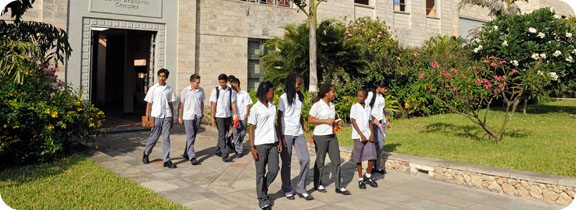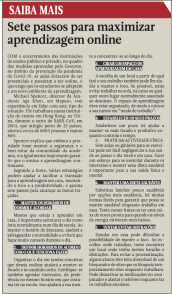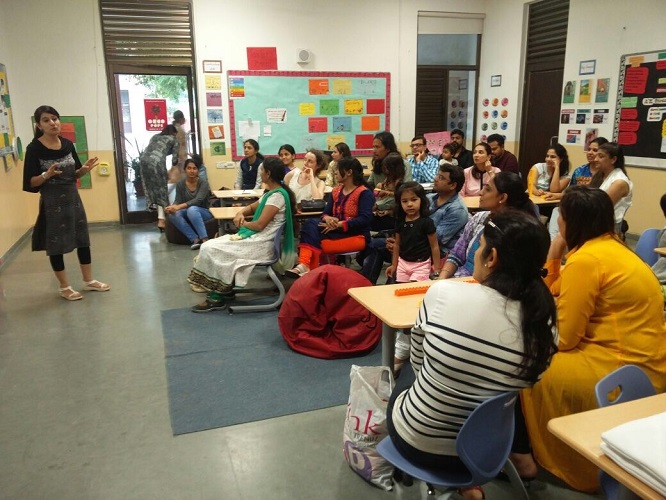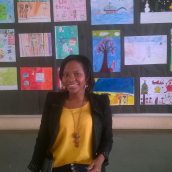End of term break
The Aga Khan Academy Maputo will be closed on 19 December 2022, with classes resuming in January 2023.
Classes resuming
Classes will resume for the new term at the Aga Khan Academy Maputo on 16 January.
School closed
The Aga Khan Academy Maputo will be closed on Monday, 1 May 2023 and will resume on Tuesday, 2 May 2023.
Enrichment Programmes
The enrichment programmes for the present term at the Aga Khan Academy Maputo will resume on Thursday, 22 February 2024.

Introduction to the Aga Khan Academies
In 2000, His Highness the Aga Khan initiated the establishment of the Aga Khan Academies, an integrated network of schools to be located in countries across Africa, South and Central Asia, and the Middle East.
The aim of the Academies is to develop future leaders with the skills and knowledge to support positive development in their societies. The Academies achieve this by recruiting exceptional young people from all backgrounds and providing them with the highest international standard of education.
Admission is based upon merit, with financial aid available to ensure access for accepted students regardless of financial circumstances.
Global network
The first Aga Khan Academy opened in Mombasa, Kenya in 2003, the second in Hyderabad, India in 2011, the third in Maputo, Mozambique in 2013 and the fourth in Dhaka, Bangladesh in 2022.
Rigorous academic programme
The academic programme offered by the Academies has been developed according to the principles of the widely-recognised International Baccalaureate (IB). The IB provides a challenging academic environment for students and allows their achievement to be measured against international standards.
In addition to providing a rigorous academic and leadership experience, the Academies help students develop an ethical and public-minded outlook through community service opportunities and education on ethics and pluralism.
“An education must equip students with the tools that enable them to adapt and thrive in a world characterised by change.”They also recognise that to become effective leaders, students must be both globally minded and locally rooted. Global as well as local perpectives are reflected in the curriculum, and students study in both English and the local language.
Purpose-built residential campuses
Each Aga Khan Academy campus is architect designed and purpose built. They feature state-of-the-art classrooms and resource areas, and extensive sports facilities.
The residences provide secure and well-supervised accommodation for local and international students as well as those visiting from another Academy. As the network develops further, both students and teachers will participate in visits and exchanges between Academies to broaden their experience and practical understanding of pluralism.
Professional development
Promoting excellence in teaching, both on campus and more broadly, is a major goal of the Academies. Each Academy is established as a Professional Development Centre (PDC). The PDC aims at strengthening the profession of teaching in the region by providing substantial professional learning opportunities and modelling highly effective educational practice.
Naheed Hirji Keynote Speech at 2016 Peace Summit
Naheed Hirji, Growth and Partnerships Manager at Facebook, Africa was one of the Keynote speakers at the Peace Summit 2016. Naheed has in the past worked with Microsoft, Zynga and various social enterprises that are using technology to make a positive change in the world. He currently works on growing internet penetration in Eastern and Southern Africa using Facebook’s free basics (Internet.org).
Naheed stirred an interesting discussion around the theme of using Internet as a tool for peace. He started off with a conversation around the question “Is internet a human right?” Students responded with some interesting claims including the fact that humans have lived without the Internet before so why can’t they now? However, some brought up the issue of censorship and how governments monitor the public, compromising privacy. A discussion on whether or not internet is a tool for peace followed. Opinion was split in the room at first. The proposers argued how awareness and fundraising for important causes can be done using social media while the opposing side argued that the internet has given birth to cyber bullying.
This discussion finally led up to Naheed sharing how he came to a conclusion about this and why he took the job at Facebook. Naheed was a technology geek growing up but wanted to make a difference using technology. When he was offered the job at Facebook, he was uncertain about the impact he would be able to make, so he used IKIGAI. IKIGAI is a Japanese concept meaning "a reason for being". Everyone, according to the Japanese, has an IKIGAI. Finding it requires a deep and often lengthy search of self. IKIGAI evaluation consists of 4 questions: Are you doing something that you love? Are you doing work or deeds that the world needs or will be better for? What is it that you are really good at? And finally, is it possible to monetize this? His job was going to be to grow internet users in Africa, but how would this benefit people and the world? He thought to himself, the internet is a breeding ground for cyber bullying, spreads false information and hate speech and reduces individual privacy. He used the examples of ISIS and the conflict between Apple and the US government. However, the internet has the incredible power to connect people around the world, enable friends and families to communicate, improve job creation, education and health care levels, gives us information on our fingertips and gives everyone a voice and the power to share their opinion. If he were to help launch free basics, it would make the internet accessible to more people by providing them access to a range of free basic services like news, maternal health, travel, local jobs, sports, communication, and local government information, assisting them to improve their lives. He was going to be able to use technology to make a difference in the lives of billions of people. When he took the job at Facebook, he was sure he had found his IKIGAI.
He believes the internet and technology can be used as a tool for peace. All that is required is a change of attitude, being informed and critical thinking. “We must strive to become responsible citizens of the internet, break cultural, societal and political barriers and engage in respectful dialogue.” he said. He ended by sharing the idea behind peace.facebook.com, which demonstrates friendship and understanding in the most unexpected places and which is what we must aim to achieve using the internet.
By Inaara Gangji, DP1 (The Reporters)
CIS College and University Fair
Join us on Monday 09 April for a full day of exciting opportunities to talk to university reps from around the world.
Maria Atalia Matola: Exuding passion in her profession
From early on in her career, Atalia exhibited qualities of perseverance and courage toward achieving her dreams and receiving an education. Despite initially facing challenges in her plans to attend university, Atalia remained strong-willed and pursued her studies in teaching English at a teacher’s college in Maputo. The one-year intensive programme rewarded her with a teaching qualification for students from Grades 1–7 and ultimately, entrance into a university programme for English language teaching, which qualified her to teach at the secondary level as well. “After that one-year course, I realised that I really love teaching. When I get to the classroom it’s as if I’m connected to a socket. It just comes naturally – my communication with the students and delivery of the lessons,” she claims. Atalia taught for four years in both private and public schools before coming to the Academy.
During her programme at the teacher's college, she had the experience of teaching English to adults and was able to gain many skills, which she built upon and adapted during her time in Mombasa. She continues to search for new experiences and enjoys being stretched out of her comfort zone. As she has taught younger students and adults, she says, “I would like to challenge myself and teach teenagers.”
With bravery and a determined mindset, Atalia embraced the opportunity to teach at the Academy in Mombasa. Previously, Atalia was teaching at the Matolajhota school in Maputo, and frequently attended the Professional Development Centre (PDC) training and development sessions at the Aga Khan Academy Maputo, which is where she learned about the TPP. After a rigorous selection process, she was one of six individuals who were chosen to participate in the TPP.
Atalia experienced culture shock when transitioning from Maputo to Mombasa. The dressing style, the hospitality, the dominant religions and the culture are all very different from her hometown. She began to appreciate the cultural nuances and slowly adapted to the different social and cultural environments of the city, including the language. “I came to Mombasa thinking I have to work on improving my English, but I’ve also started learning Kiswahili!”
Not only was she exposed to a new culture and belief system, but Atalia also reflects upon the many lessons and skills she learned whilst in the classroom. She is always willing to grow, learn and unlearn, all in a bid to further develop her mindset and philosophy of teaching. “There are so many things that I learned here that I’m going to take in my luggage to Maputo…[especially] the inquiry-based learning, because here in the IB curriculum the student is at the centre of the learning, it’s not the teacher.” Atalia also feels that the collaborative learning approaches and the integration of the Aga Khan Academies' (AKA) Learner Profile attributes within the classroom make a large impact on the development of the child. “It makes a lot of difference…the way the students behave inside and outside the classroom really mirrors the AKA LearnerProfile.” She emphasises, “No doubt [my experience at the Academy] has made me a more effective teacher.”
Atalia has returned to Mozambique to teach at AKA Maputo. The language of instruction in Mozambique is normally Portuguese, but the Academy implements a dual-language approach and teaches in both English and Portuguese to ensure that students are fluent in both English, which is taught across the Academies network, and the language spoken in their national context. “I’m really passionate about English,” says Atalia. Many students entering Grade 1 at the Academy speak little to no English, which can make teaching in English challenging. “The main language of instruction will be English, but we’ll have Portuguese as a scaffolding language for students who don’t understand English well,” she notes.
Atalia speaks about the need for a teacher to develop a relationship with the students that goes beyond conveying information. “To be an IB teacher, you need to be someone who is passionate about your profession. You have to play so many roles apart from being a teacher…You need to be someone who is aware of the life of the student… so that you can properly guide the student.”
Having grown up in Mozambique, Atalia is looking forward to teaching at AKA Maputo, which is currently expanding its physical campus and its curricular offering to include the IB Middle Years Programme. Atalia and the other TPP graduates from her cohort will have the opportunity to bring their newly wrought skills to bear on helping to grow the school. She is embracing the challenge of nurturing the next generation of students. One of the most memorable moments of her earlier time as a teacher in Maputo was teaching young students who didn’t yet know the alphabet how to read. “It was a great moment for me to see those students opening their books and reading, joining words together, making a sentence, counting…It really touched my heart.”
Atalia has learned a great deal through the TPP but is looking forward to continuing her growth as a teacher. She says, “This course has changed me totally, no doubt. But I still want to learn more – there are so many things that are still in my mind and that I want to know how to implement. I will still learn.” Atalia also hopes to work with the PDC at AKA Maputo and share her experiences with the next cohort of teachers engaging in the TPP.
By: Karishma Bhagani and Sarra Sheikh



